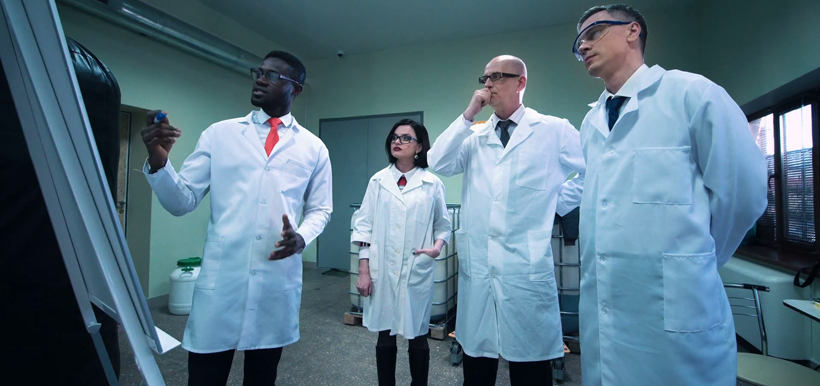When you think about someone helping a sick person, the first thing that comes to mind is usually a doctor or a nurse. They wear white coats, have stethoscopes, and know a lot about medicine. But what if the problem isn’t just medical? What if someone’s biggest issue is understanding what their doctor is saying, figuring out how to pay for treatment, or making sure they’re not being ignored?
That’s where a different kind of helper comes in. These helpers don’t do surgery or hand out pills. Instead, they listen, explain, organize, and speak up when the patient can’t. They’re called patient advocates, and honestly, they can make a huge difference.
Why Some People Need Help with More Than Just Medicine
Being sick isn’t only about pain or symptoms. It’s also about the paperwork, confusing rules, long wait times, and having to speak up when you don’t even feel well enough to get out of bed. Imagine being in a hospital, hearing a bunch of big medical words, and not knowing what they mean. Or getting a bill that’s five pages long and feeling too scared to even open it.
That kind of stress can make someone feel lost—especially older adults, people who don’t speak English very well, or anyone who’s never had to deal with hospitals before.
In situations like that, people don’t just need treatment. They need someone on their side. And that’s why so many families now try to find a patient advocate. These advocates help patients understand what’s going on, make sure their wishes are respected, and remind the medical team that there’s a real person behind every chart.
What a Patient Advocate Actually Does
So what does a patient advocate do, exactly? It depends on the person and their needs, but here are a few things they often handle:
- Talking to doctors and nurses to make sure the patient’s voice is heard.
- Helping explain what the diagnosis or treatment actually means.
- Keeping track of medical appointments, medications, and test results.
- Making sure hospitals or clinics don’t rush patients into decisions they don’t understand.
- Helping families figure out insurance and billing questions.
Basically, they’re the friend you wish you had when everything feels too hard to handle on your own. They don’t replace doctors, but they help connect everything so the patient gets the care they need without getting lost in the mess.
Why It Matters More Than You Think
It might seem like patient advocates are just an extra bonus, but for some people, they’re the reason things don’t fall apart.
Here’s the truth: not everyone gets treated the same in the healthcare system. Some people are taken seriously. Others are not. Sometimes doctors assume an older person is just “confused,” when really they just need things explained better. Other times, patients are rushed or not told about every option because the doctor is in a hurry or thinks the patient won’t understand anyway.
That’s not fair. And it’s not okay.
Patient advocates can step in and say, “Hold on, let’s make sure this person understands what’s happening.” Or, “They said they don’t want that treatment—why are you pushing it again?” They make sure everyone slows down and listens.
That kind of backup can change someone’s whole experience.
It’s Not Just for Big Emergencies
Some people think you only need a patient advocate during a major health crisis—like a serious illness or surgery. But actually, advocates can help in regular appointments too.
Let’s say someone’s been seeing a bunch of doctors and none of them are talking to each other. The patient has no clue if the meds they’re taking from one doctor are safe with the treatment another doctor just gave them. A patient advocate can step in, gather the info, and make sure nothing dangerous is happening.
Or maybe someone has been asking for help for months, but no one is listening. They’re being told “everything looks fine” while they’re still feeling awful. A patient advocate can help that person ask better questions, bring up their full history, and push for real answers.
Even small things—like filling out forms, choosing between care options, or asking a doctor to speak slower—can feel easier when someone’s right there with you.
Who Can Be a Patient Advocate?
There are professional patient advocates who do this as their job. They know the system inside and out and often have backgrounds in healthcare or social work. Families can hire them when they feel overwhelmed.
But sometimes, patient advocates are family members or close friends. A teenage kid might help their grandparent keep track of medicines. An adult daughter might go to her mom’s appointments and take notes. A neighbor might help an elderly person read their hospital bills.
Even if someone’s not an “official” advocate, they can still speak up and ask questions. What matters is that the patient doesn’t feel like they’re facing everything alone.
The Difference One Voice Can Make
One of the most powerful things a patient advocate can do is just remind the healthcare team that the person they’re caring for is a human being, not just a chart or a room number.
That reminder can change the way a doctor explains something. It can lead to extra tests being ordered—or treatments being stopped. It can give a scared patient the confidence to ask, “What does that mean?” without feeling embarrassed.
Having someone to check in, to explain, and to stand by your side might not sound like much—but when you’re sick or scared, it can feel like the most important thing in the world.
What You Should Remember
You don’t have to be alone in the healthcare system. It’s okay to ask for help. It’s smart, actually. Whether it’s a professional advocate or just someone who cares enough to come with you, having another set of eyes, ears, and hands can change everything.
Being sick is hard enough. No one should also have to fight to be heard or understood on top of that.
So, if someone in your life is struggling with their care—or if you are—know that support exists. Speak up. Ask questions. And if it still feels too hard, reach out to someone who can speak up for you.
Because not all heroes wear lab coats. Some of them just make sure you’re not forgotten.


